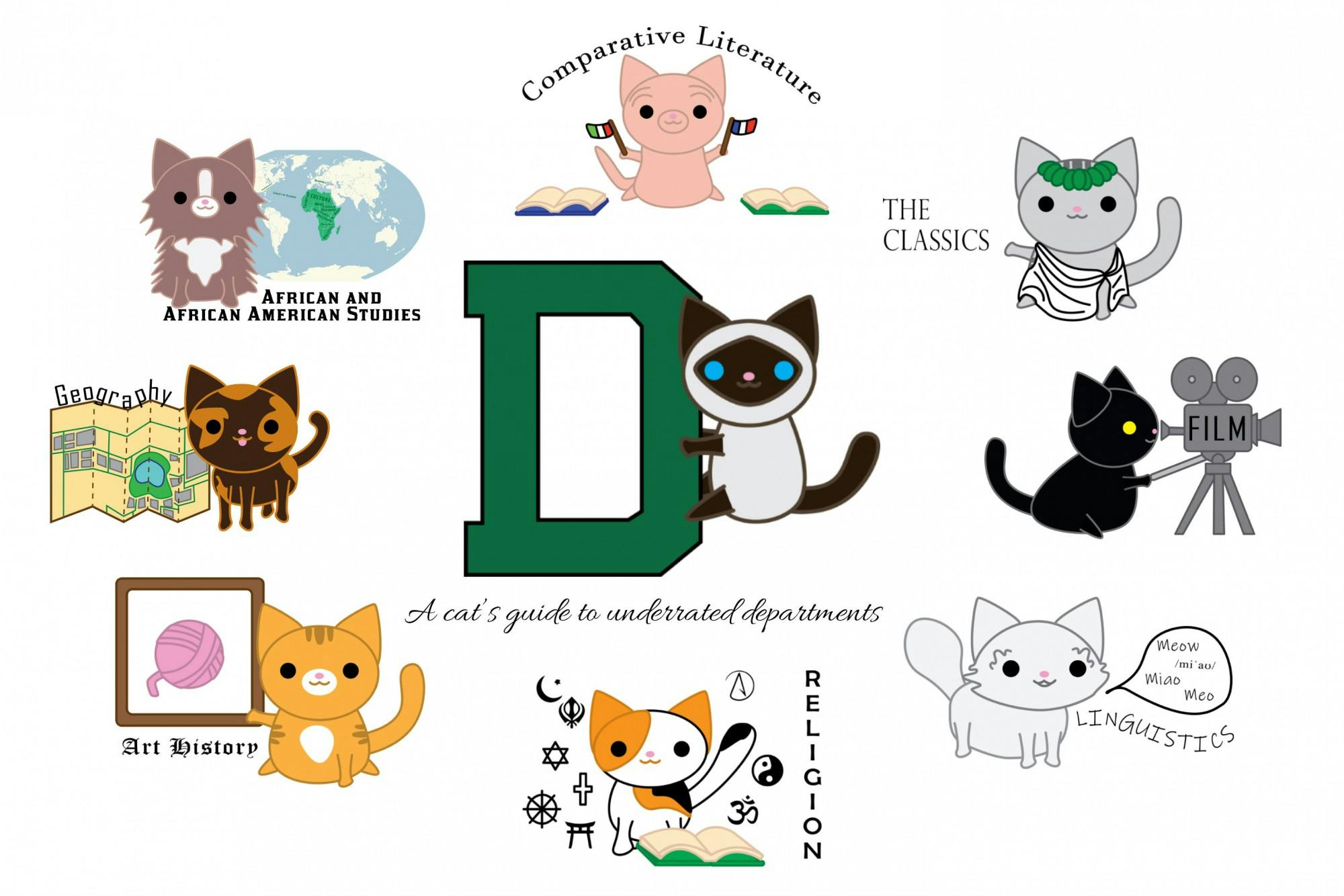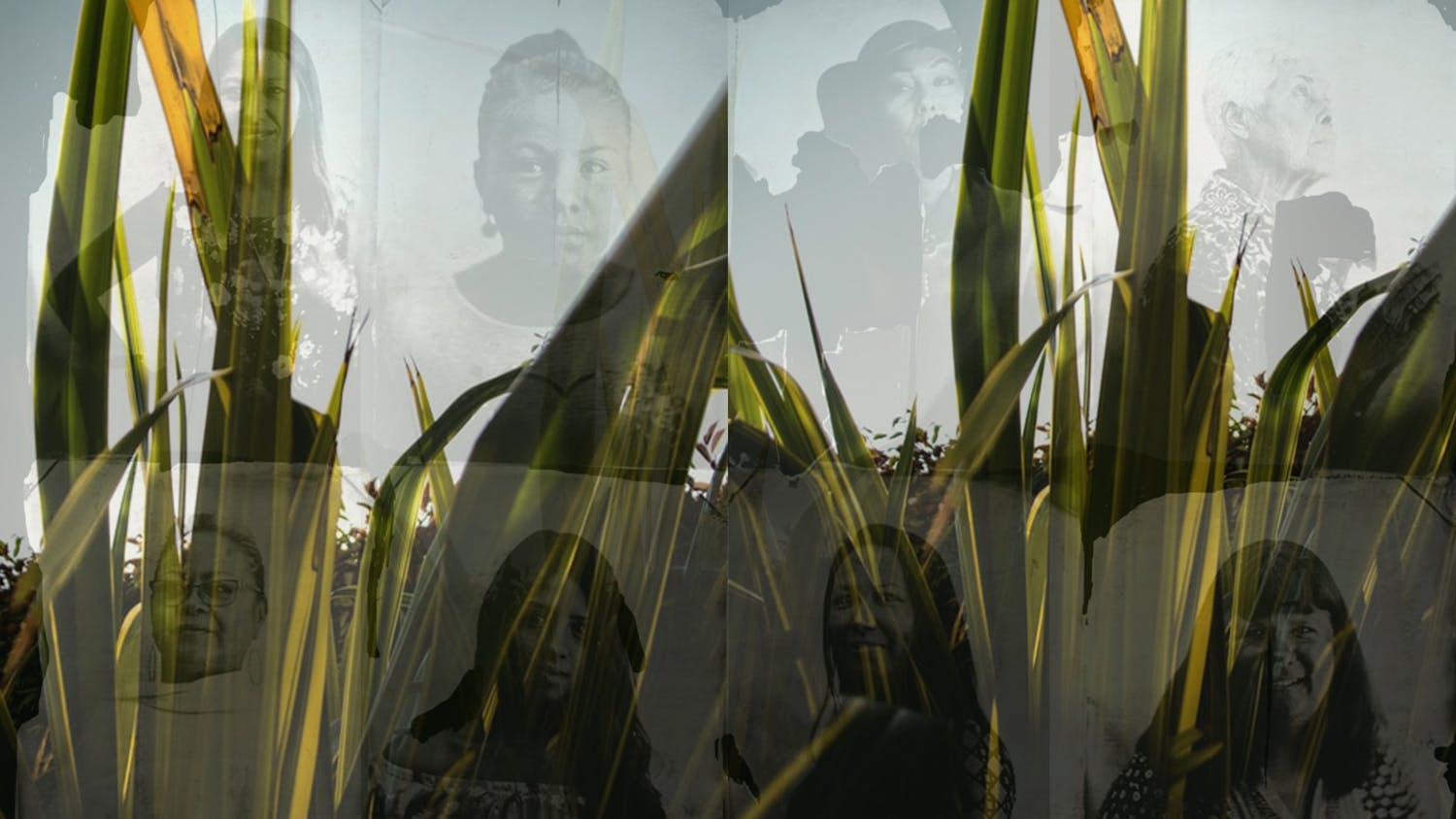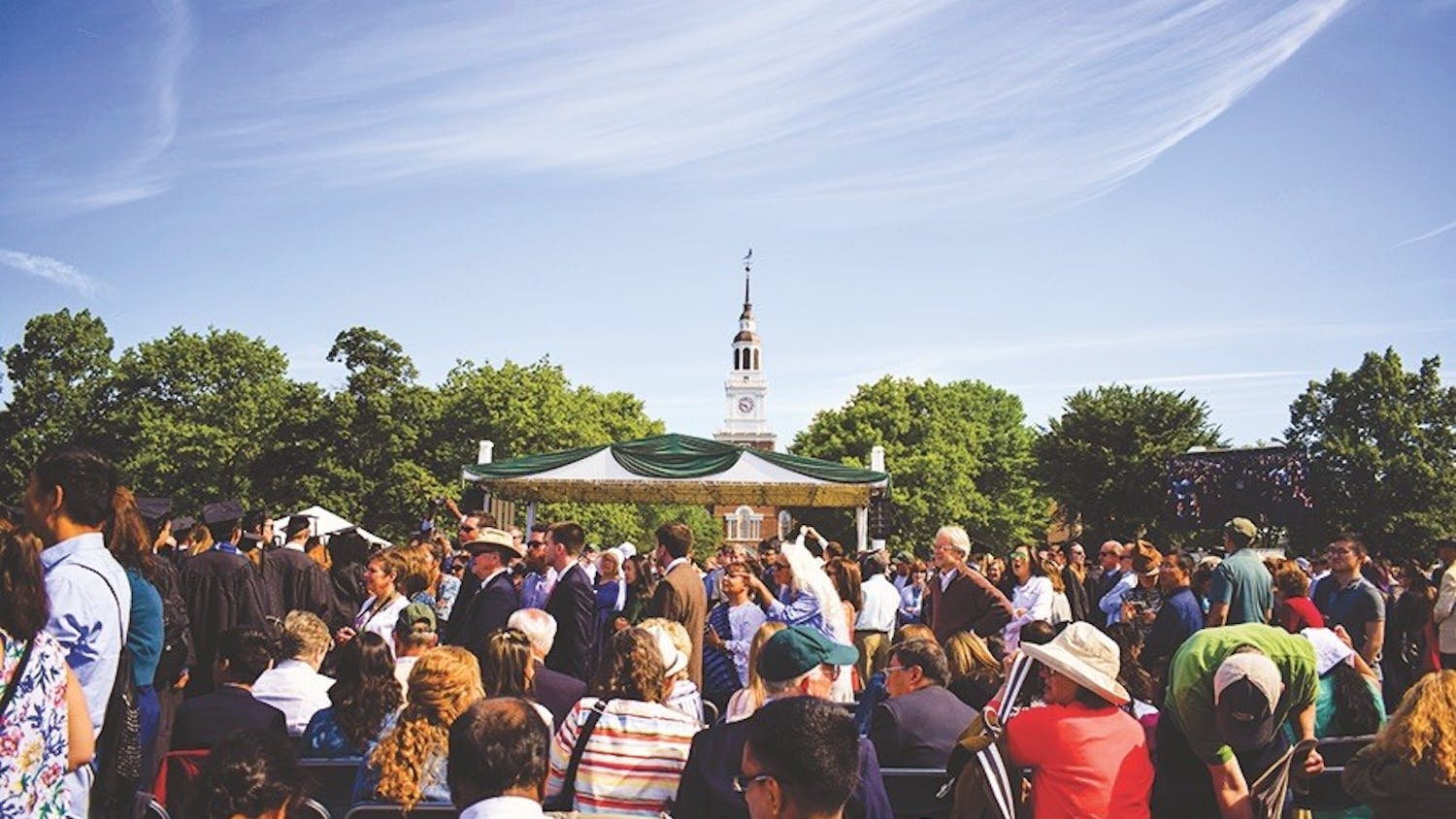This article is featured in the 2020 Freshman special issue.
With over 40 departments and interdisciplinary programs, Dartmouth offers students the opportunity to explore a constellation of academic interests. However, as varied as the intellectual experience may appear at first glance, there are familiar patterns to the Dartmouth trajectory. Among them is the phenomenon of “selling out,” where students give up their initial course of study to major in an “employable” field like economics.
Perhaps this pattern is sensationalized, but the numbers back it up: Economics was the most common major among the Class of 2019, with the department graduating nearly 300 students. The next most common majors were government, engineering sciences, psychological and brain sciences and computer science, with at least 185 students majoring in each. Meanwhile, some majors in the arts and humanities division and interdisciplinary programs, such as Russian, German studies, art history, religion and comparative literature, only attracted single-digit numbers of students.
While most Dartmouth students will get to know the more popular departments through their own studies or through their friends, many other courses of study fly under the radar.
One such interdisciplinary program is comparative literature, where students learn to read and write critically in other linguistic and cultural traditions, according to program chair Lawrence Kritzman. The program brings perspectives from other disciplines — philosophy, history, film and women’s, gender and sexuality studies, for example — to bear on textual analysis.
To fulfill the program’s requirements, comparative literature majors have the option of studying literature in two languages, or studying literature in one language and one non-literary discipline, such as music and film. Both options require students to achieve fluency in one non-English language.
Kritzman said that while most comparative literature courses are open to all class years, COLT 1, “Read the World” is especially popular among freshmen. However, that is by no means the only option: Courses take on topics ranging from video games to Nazis and Antifa. Kritzman himself will be teaching about theater in Britain, France and the U.S. in COLT 34.01, “Theater of Ideas: Britain and France,” this fall.
“Most [freshmen] do extremely well and can hold their ground with senior majors,” Kritzman said. “We welcome a great variety of backgrounds. It’s an intellectual banquet for them.”
Religion department chair Reiko Ohnuma similarly described the study of religion as “inherently interdisciplinary.” The courses introduce students to religions from various traditions, and students are often asked to use history, social analysis and philosophy to explore existential questions.
“There’s a lot of asking of big questions — Why are we here? Where do we come from? Where are we going? What’s the meaning of human life? — but it’s all done from an academic perspective and not from a faith perspective,” Ohnuma said.
She explained that the difference between introductory and intermediate religion courses is not that significant, and none of the courses have prerequisites. She recommended two courses to freshmen, REL 1.10, “Religion and Social Struggle” and REL 1.04, “Beginnings and Ends of Time,” as forays into an academic subject they have likely never pursued before.
“Think beyond what you’re used to taking in high school,” Ohnuma advised freshmen. “Find at least one course that you never thought you would take, you didn’t even know that subject matter existed, and try it out. That’s what college is about.”
There are also a bevy of courses that may take students out of their comfort zones. For example, THEA 1, “Acting I” is a popular course offered by the theater department. The theater major emphasizes hands-on experience: The requirements include four courses in theater practice, in addition to five courses in theater studies and a culminating experience.
Theater major Millenah Nascimento ’21 has found a home in Dartmouth’s theater department, where she has been involved in multiple productions, serving as assistant stage manager for “Cabaret” her freshman fall and stage manager for Celeste Jennings ’18’s original production “Citrus” her freshman spring.
Through her time in the department, Nascimento has had the opportunity to do research on the impact of theater education on schools with predominantly students of color, redesign the website for theater professor Monica White Ndounou’s nonprofit, The Craft Institute, work at the White River Junction’s Northern Stage and study abroad in London. She said that the department “has exposed [her] to all the options that [she has] out there, whether that be within the field of theater or beyond.”
Nascimento has also built relationships and found mentors through her study of theater. She recalls entering Dartmouth on the pre-med track because she wanted to help others. When she dropped pre-med to focus on theater, she credits Ndounou with lessening some of her worry surrounding that decision.
“One of the reasons I wanted to be a doctor was because I wanted to give back,” Nascimento said. “[Ndounou] really helped me see that with productions like ‘Citrus,’ I’m doing that.”
While Nascimento has dedicated her time to theater, other students have tweaked their majors to accommodate multiple academic departments. Coming to Dartmouth, Natalie Shteiman ’21 wanted to learn another language to complement her first language of Russian, and chose to study Arabic because she loved the written language and has always wanted to go to the Middle East. She knew she wanted to major in Middle Eastern studies, which had eight student majors in the Class of 2019, after taking her first Arabic class, which led her to other courses in Middle Eastern history, politics and literature.
Eventually, Shteiman decided to modify her major with art history after taking a class her sophomore spring called ARTH 62.71, “Islamic Architecture” with art history professor Nicola Camerlenghi. Her modified major requires six courses in Middle Eastern studies and four courses in art history. By broadening her studies, she has been able to take advantage of opportunities like helping to create a virtual reality model of a basilica in Rome and interning at the Peggy Guggenheim museum in Venice.
“I’m surprised at how much I’ve been able to combine the two [subjects],” Shteiman said. She said her thesis is on contemporary Palestinian art, and it focuses on a hotel in Bethlehem designed by the British street artist Banksy, as well as increased attention given to Palestinian art by the auction house Sotheby’s.
Like Shteiman, Cheyenna Gonzalez Pilsner ’21 also has a passion for languages. A romance languages major, she spends most of her time in the Spanish and Portuguese department and appreciates the diversity of faculty backgrounds, with professors hailing from Latin America and Spain.
Gonzalez Pilsner describes the classes in the department as both fun and fascinating. One of her favorite classes focused on a famous Spanish trio in the art world: cinematographer Luis Buñuel, artist Salvador Dalí and writer Federico García Lorca. Throughout her time at Dartmouth, she has studied abroad in Madrid and conducted research on queer tango under professor Noelia Sol Cirnigliaro.
Gonzalez Pilsner’s course of study allows her to learn both Spanish and French. The requirements for the major are six upper-level courses in the primary language and four in the secondary language. Gonzalez Pilsner was pleasantly surprised to find that she could study two languages in one major because previously she had thought that hybrid majors did not exist in the humanities.
“I didn’t dare ask anybody about anything freshman year,” she said. “But there’s always this ability to make something a little bit different or customize [your major].”
Freshmen don’t have to worry about choosing or creating a major until their fifth term in residence. Across the board, the students and professors I talked to all urged freshmen to take the time to really explore Dartmouth’s course offerings.
When I was a freshman, I spent hours scrolling through the never-ending timetable during the course election period. I scrapped my aunt’s advice to take economics and I completely forgot that chemistry was my intended major. Instead, I camped out in House Center A, also known as “the Onion,” sourcing class suggestions from my floormates and googling the word “sociology.” I was overwhelmed.
But after that initial frenzy, that willingness to explore guided me through so many different alcoves of Dartmouth’s academic offerings, from architecture to public policy to creative writing. This kind of broad exploration has made me understand the meaning of a liberal arts education.
Nascimento echoed the sentiment that open-mindedness will lead students to unexpected places. She advised freshmen to remember that even if they don’t get to pursue the first thing on their minds, there’s always something else around the corner.
“There are countless passions in the world,” she said, “and you don’t even know if you’ve discovered your passion yet.”




